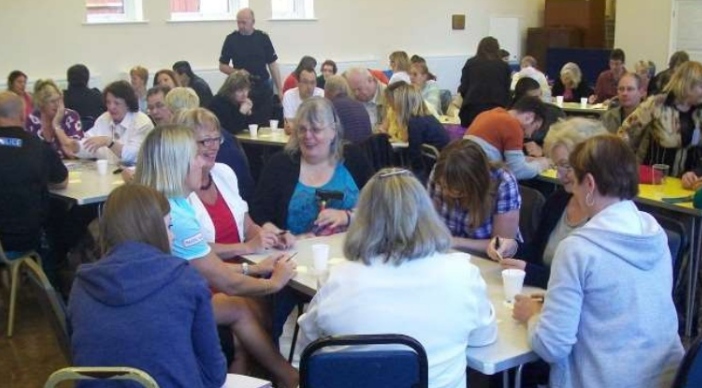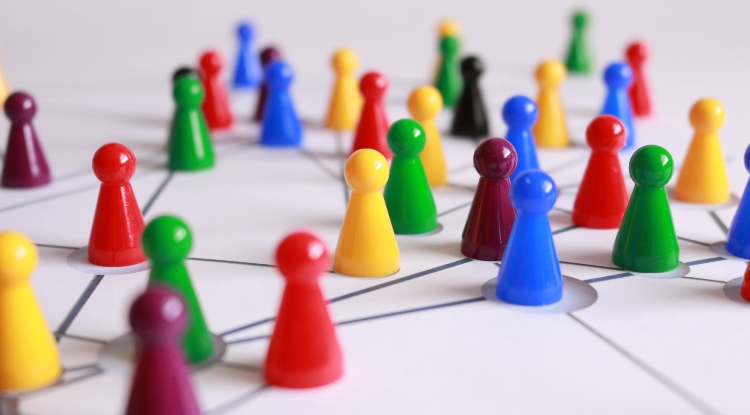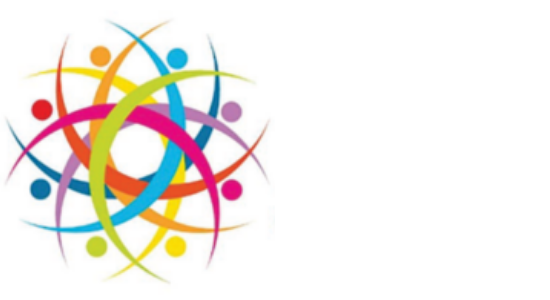‘Giving local people power over the design and delivery’ of their services shines through the latest proposals for a new social covenant.
C2 has shown that it’s not about ‘giving’ communities power but of creating the conditions for them to take more control. This delivers lasting transformative change and health improvement as we’ve proved many times over in last 25 years.
Levelling up
Called ‘Levelling Up Our Communities: proposals for a new social covenant’ [pdf] the report from MP Danny Kruger falls under the main headings of Power, People and Place, ‘not that dissimilar to the Civil Society Strategy of 2018,’ says the Small Charities Coalition review.
The Small Charities Coalition also goes on to say that the ‘devil will be in the detail.’
The masquerade
This is so often the case. In C2 we’ve seen countless externally imposed interventions masquerading as ‘community-led’ that are in fact anything but. Most are well intended but professionally led short-term projects that ‘involve’ the community. Any benefits they bring evaporate as soon as funding runs out leaving communities worse off than they were before. (Word to the wise, we don’t do ‘projects’, we create conditions for long-term culture change.)
The gate-keepers
We’ve also seen health promotion and health signposting trumped up as ‘health creation’ where large organisations targeting health-challenged communities invariably hold the purse strings, creating a gate-keeping role that ironically actually robs the community of any sense of influence or control.
The gilded
And what’s worse we’ve had to witness many of these being hailed as gilded examples for others to follow.
Optimism
That said there are lots of Danny Kruger’s assessments to be optimistic about. For starters, the recognition of the amazing energy, swift adaptation and self-organisation of local communities during lockdown unfettered by bureaucracy, as a major catalyst for rethinking a genuinely community-centred future.
Barriers
But putting communities at the centre is easy to say and hard to do. Decades of being ‘done to’ with layer upon layer of bureaucratic obstacles, have created huge barriers and deep mutual distrust between service providers and local people.
‘Consultation’
When ‘consultation’ is nothing more than ticking boxes, filling in forms or questionnaires, it’s not surprising that communities pull back in full knowledge that an agenda has already been set, regardless of their input, increasing their sense of powerlessness.
Listening
‘Listening’ to communities, however, is the polar opposite of consultation. They always hold the solutions. Getting things right – getting things wrong and apologizing are all part of our everyday interactions, and they should be part of the everyday interactions between community, service providers & state.
Unique positions
In our webinars with the Society of Local Council Clerks, we’ve seen how town clerks, parish and town councils are in a unique position to be fulcrums in building new relationships. At C2 we already know how the police, fire service, housing and health agencies can work as equals with communities as enablers, sharing power and problem solving – and everyone’s a winner!
Complex and evolving
The issues facing very low income-communities where health is worst are complex and constantly evolving. Rather than shying away from this complexity our success in C2 has come from viewing communities as complex adaptive systems with potential to transform and create new order. They can, they do and they get well in the process!
‘A disease of inequality’
Dr Patrick Hutt who chaired an excellent New NHS Alliance conference recently, described Covid-19 as ‘a disease of inequality’. We’ve all witnessed the heart-breaking consequences of our historical failure as a nation to tackle this ‘wicked’ problem.
Ray of hope
Danny Kruger’s new social covenant paper offers another ray of hope in dealing with endemic health inequality, but like so many others before it, it may soon get clouded out -unless policy makers finally recognize that the answers to health inequality actually lie with those experiencing it!
The answers are here
As Dawn Shepherd, founder of Dartmouth Community Chest and member to the TQ6 Community Partnership (TCP) said, “The answers are and have always been in this community.” It’s a sentiment she echoed in a webinar, along with others, for Lord Nigel Crisp. And we know it is being echoed up and down the country.
Seems like those voices are finally being heard, but is anyone really listening?
top image: a listening event at Cliftonville




